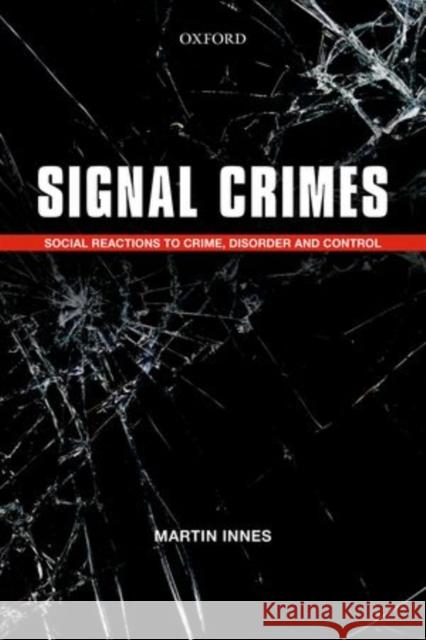Signal Crimes: Reactions to Crime, Disorder, and Control » książka
Signal Crimes: Reactions to Crime, Disorder, and Control
ISBN-13: 9780199684472 / Angielski / Miękka / 2014 / 352 str.
Drawing upon a ten-year programme of fieldwork research, Signal Crimes: The Social Organisation of Reacting to Crime and Social Control presents the results from a series of inter-linked empirical studies that have resulted in the concept of a 'signal crime': an incident that changes how people think, feel and behave about their safety due to their actions operating as signals to the presence of wider risks and threats.
Presenting ground-breaking new perspectives on social reactions to crime, and how individuals, communities and institutions respond to acts that breach laws and conventions, this book demonstrates how and why certain incidents function to shape the contours of social order. With an extended treatment of reactions to a variety of problems in different contexts, from the impact of volume crime and disorder to terrorism and homicide, as well as the impact of policing and social control measures, Signal Crimes explores how the fear of crime 'travels' in the aftermath of criminal homicide incidents, and why some homicides impact more significantly upon local communities than others. It also examines how counter-terrorism measures have evolved in response to new concerns and looks at the various technologies that have been configured to provide social control solutions to crime and disorder problems.
Through examination of these diverse issues and using a range of both historical and contemporary sources, the author reveals how our individual and collective responses to problematic behaviour are organised. If a perspective constitutes a way of seeing, then the signal crimes perspective provides a new set of optics for how we see the impacts of crime, disorder and control. Showcasing the development of this new concept, Signal Crimes argues for a radical and challenging understanding of how we think not only about the crime, but also about the ways in which we perceive and react to such problematic and troubling acts.











